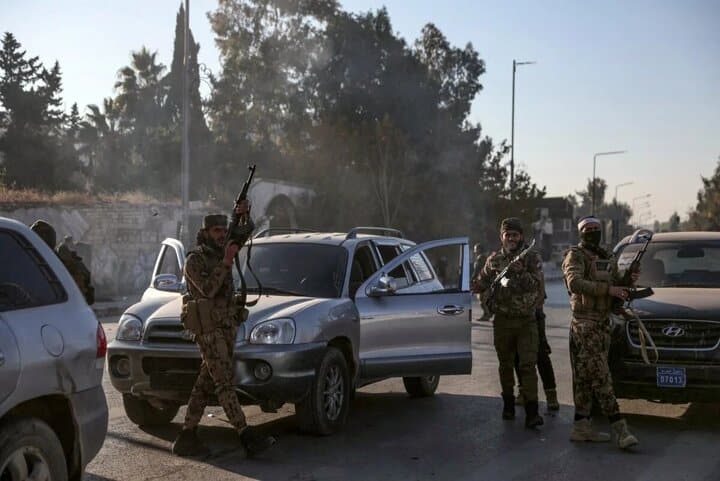Syria’s uncertain future in the shadow of the Jolani regime’s governance model; from cattle ranching with Türkiye to cooperation with the Zionist regime.
Drawing a long four-year roadmap to embark on the path of the political process and official elections will block the participation of various groups and currents in Syria, and the Golani regime can use this as an excuse to seize all the pillars of power.
The new year began in a difficult situation for the Syrian people, and these days in Damascus, Aleppo, and other cities, there is no sign of the prosperity and dynamism of the beginning of the year. In the cold of winter, relative stability has been established in Syria. However, it is still unclear what the future of this country will be and how its political and executive structure will be stabilized. However, current signs and actions indicate that all sensitive positions and posts have been taken by people who previously held weapons in their hands as extremist rebels in Idlib and are now introducing themselves as Syrian political officials wearing suits and ties. However, in recent days, most Western media outlets have used the term “Syria’s de facto leader” to describe the position and title of al-Julani or Ahmed al-Sharaa, the leader of the terrorist organization Hayat Tahrir al-Sham: “Syria’s de facto leader.”
The political and legal term de facto leader refers to a leader who has taken power not in a political or electoral process, but in an emergency, and is “unofficial,” and is a person who has not been elected by the citizens but is, so to speak, the leader “in practice.” Reuters, Agence France-Presse, and several other media outlets have used the same term to describe al-Julani’s position and title. Such an approach indicates that Westerners are also reluctant to consider the statements and positions of the current head of the Syrian government as valid, official, and credible.
The Associated Press has discussed the issue, stating that based on the experiences and events observed in previous years in Tunisia, Egypt, Libya, Yemen and Sudan, the failure to transfer power to civilians is a sensitive and decisive issue and could lead to a chain of events; especially since it is not yet clear whether Golani will seek to purge or compromise the remnants of the former government.
Jolani, America and the Elections
According to the New York Times, there is still no news of the Trump administration’s policy announcement on Syria and Washington-Damascus relations, still, Jolani has repeatedly expressed hope that US President-elect Donald Trump will lift the sanctions imposed on Syria. Although senior US diplomats visited Damascus and the $10 million reward for Golani’s capture was canceled, US State Department experts, upon returning to Washington, considered Golani’s positions and words pragmatic, and it was said that it was not clear whether he would stick to his positions or not.
Reuters reported that Jolani showed no urgency about the possible timetable for the elections, saying that holding the elections in Syria could take up to four years and that three years was foreseen for drafting a new Syrian constitution. However, in reality, no guarantees were given for these two time periods and it is not unlikely that it would take more than four years in practice. The leader of the terrorist organization Hayat Tahrir al-Sham, which ousted Syrian President Bashar al-Assad from power, said in an interview broadcast on Sunday by Saudi state media that organizing elections in Syria could take up to four years and drafting a new constitution could take three years.
Jolani and Turkey
Evidence shows that Golani and his entourage’s political decisions are directly related to the recommendations and demands of Ankara. So far, at least three people who have taken positions and responsibilities as ministers in the interim government in Damascus have completed their higher education at Turkish universities. The Ankara-based newspaper Qar reported that the ministers of justice, local affairs, and several local administrators in Damascus and Aleppo are all graduates of Turkish universities. Meanwhile, it has been said in Turkish political circles that a special expert team has been identified by İbrahim Kalın, head of the Turkish Intelligence Service (MIT), to advise the terrorist regime of Golani on the establishment of a new Syrian intelligence agency.

